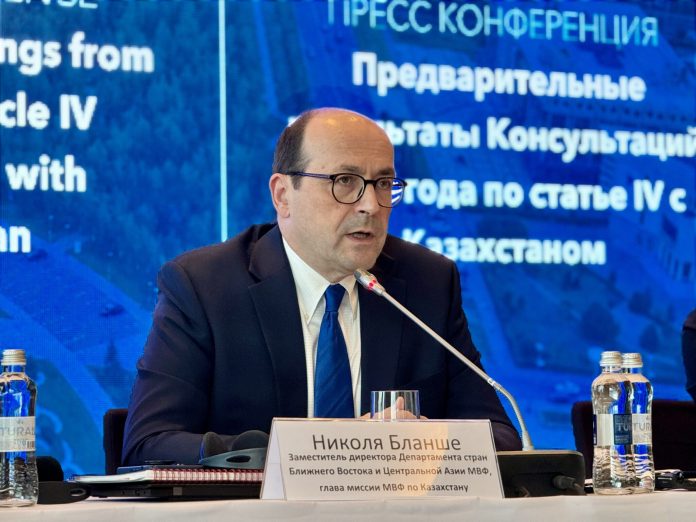The International Monetary Fund (IMF) recommends that Kazakhstan establish an independent fiscal council and stricter policy guidelines so that the country does not rely on a national rainy-day fund.
The IMF’s Final Statement of its 2024 Article IV Consultation Mission, released in early October, contains the recommendations. While the National Fund reserves have always been used to finance government projects, their use is on a “larger scale” than in the past, Nicolas Blanchet, the leader of the IMF mission to Kazakhstan, has said.
Some operations are completely unexpected, information about them is not revealed.
The dependence of the Kazakh government on the National Fund, according to the IMF, fuels inflationary trends.
Inadequate budget planning and lower-than-expected tax revenues in recent years have had a negative impact on the government’s commitment to fiscal consolidation.
The total projected withdrawals from the National Fund in 2024 are 6 trillion tenge (about $13 billion). In 2023, withdrawals totalled 5.3 trillion tenge, equal to about 20 per cent of the annual national budget.
According to economic monitoring agency Ranking.kz, the National Fund’s assets have been steadily declining since August 2014, when the fund reached its peak of $77bn. Currently, assets are less than $63bn.
The need to respond to natural disasters and unforeseen events in recent years, such as the COVID-19 and widespread flooding in northern Kazakhstan this spring, has put severe pressure on the treasury, but money from the National Fund has allowed the authorities to avoid making difficult budget decisions.
The IMF recommended a number of measures to help the Kazakh government bring public spending in line with revenues, including macroeconomic forecasting and tax reform.
The introduction of the new tax code opens up wide opportunities to increase non-oil revenues, including through the abolition of distorting tax incentives and an increase in the value-added tax rate.
However, some Kazakh analysts dispute the need to cut National Fund spending, with economist Denis Krivosheev calling for the country’s challenges to be addressed “now.”
And future generations will take care of themselves.
